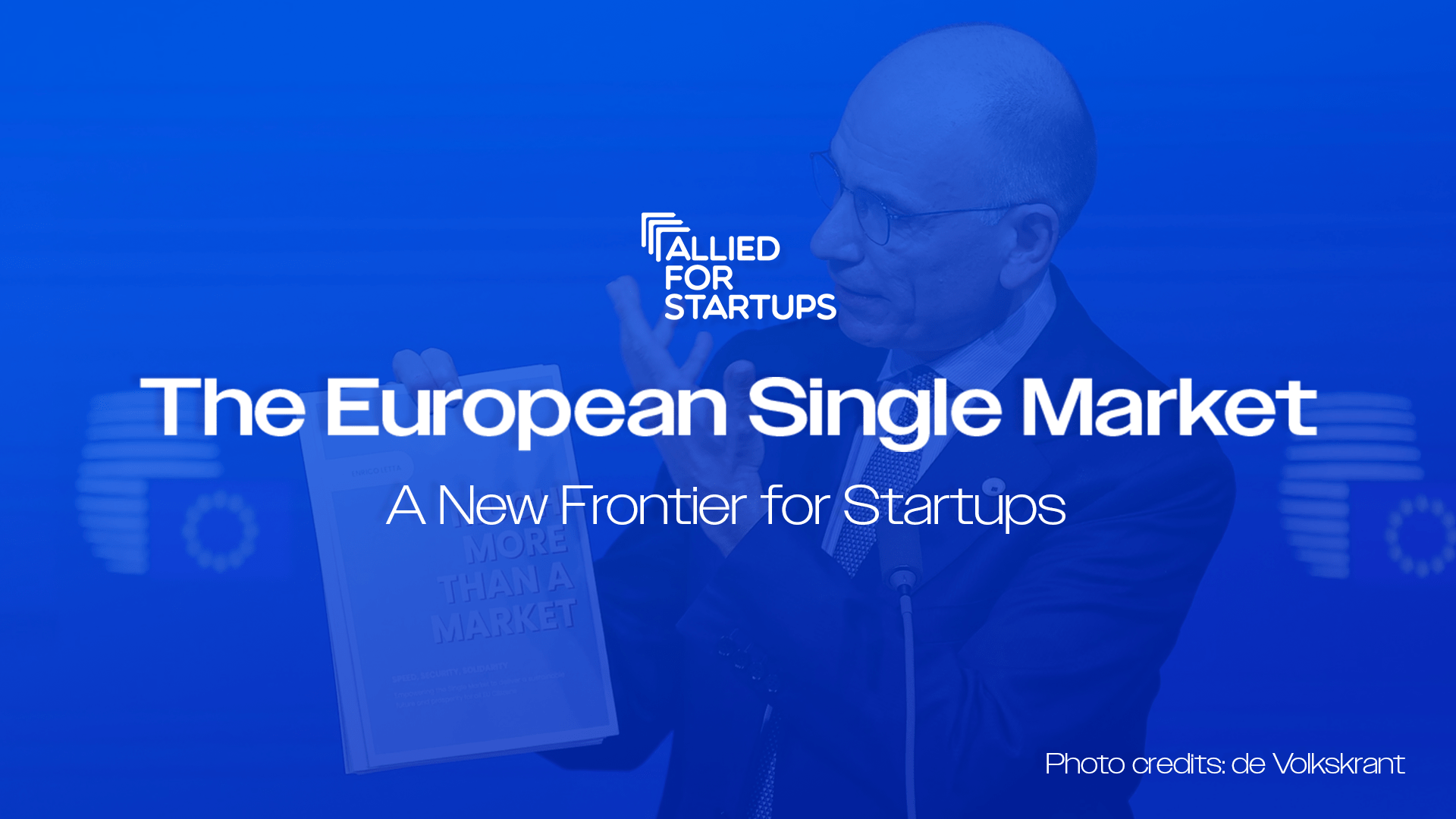The European Single Market: A New Frontier for Startups
In a rapidly evolving global market, the European Union is currently standing at a crossroads. The recent report by Enrico Letta, published on 17 April, emphasises the urgent need for reform within the EU’s Single Market. Similar statements were made by Mario Draghi, as he emphasised the urge to leverage the EU’s global competitiveness.
While both reports by former Italian Prime Ministers advocate for significant reforms aimed at reducing internal market fragmentation – a key factor for the EU’s economic future – Draghi’s focuses on broad economic and structural reforms through an EU-level ‘Industrial Deal’, while Letta’s suggests pan-European initiatives that enhance regional capabilities. The startup ecosystem has welcomed these insights with optimism, as these calls for unity and innovation are pivotal to enhancing industrial and digital capacities, foster cross-border cooperation, and provide a unique platform for EU startups to thrive in an increasingly digital economy.
Letta’s Vision for a Single Market
While also concerned with competitiveness, Letta’s report has reimagined the European Single Market as a powerhouse for global influence and standards. Throughout his report, Letta covers what is essential for strengthening the EU’s global stance. This includes scaling the digital economy, the creation of a Green Single Market, and facilitating cross-border scaling, positioning the EU to adapt to a rapidly changing geopolitical landscape.
Now, what’s in it for startups? Startup organisations are optimistic but cautious about the strategy Letta suggests. His proposition for a more robust framework seeks to intertwine the EU’s economy more deeply with the global market, creating a level playing field that is both fair and competitive. This is a particularly exhilarating read for startups and SMEs, as Letta recognises their pivotal role in driving innovation and reshaping the European market landscape, a suggestion Allied for Startups and its members made during the writing of the proposal.
Letta’s report also introduces a refreshing take on regulatory processes. He advocates for an upgrade on the Better Regulation toolbox with a ‘risk-risk assessment’ model centralised in assessments, aiming to increase transparency and efficiency in the decision making processes. Through our EU Elections Manifesto, we advocate for a startup-test for all digital regulation, to ensure that new legislation allows startups to scale.
But these are not the report’s only good news for the startup ecosystem. Indeed, the report recognises that the focus on bolstering the digital economy promises a transformative impact for both businesses and individuals. In this regard, the biggest game changer is the report’s enhancement on cross-border scaling, for companies to expand their operations across EU borders effortlessly, avoiding the traditional hurdles posed by varying national regulations. Letta’s plan facilitates new opportunities that eliminate the need for physical relocation or extensive cross-border movement. This will ensure local startups scale globally and compete in larger markets, achieving global visibility. Imagine a Lisbon-based startup being able to operate as seamlessly in Helsinki as it does domestically through a unified market framework.
While there is much to celebrate in Letta’s proposals, the startup community remains hopeful that the commitment to strengthening the digital ecosystem will continue to evolve. There’s a keen interest in seeing an increased focus on new strategies that boost the Digital Single Market, including the implementation of digital labelling to help both startups and consumers.
A Fifth Freedom for Startups
Enrico Letta’s stand on incorporating a fifth freedom stems from Jacques Delors’ advocacy on a new dimension – the need to enhance research, innovation, and education. The invigorating proposal for a fifth freedom to the Single Market can promise a new era of possibilities, particularly benefiting the healthcare sector. While we might not know what this fifth freedom entails, the aim to radically enhance cooperation and innovation in the EU is certain. It is time to break down the barriers that have hindered the integration of cutting-edge medical technologies. The impact? A vibrant landscape where digital health solutions are not just innovations but standard practices widely adopted across the Member States.
Looking Forwards
As we look towards a redefined European Union, the implications of the Draghi and Letta reports for startups are profound. These changes promise to create a more cohesive, competitive, and innovative environment, which we continue to foster at Allied for Startups. The proposed changes not only facilitate easier scaling within Europe but also prepare startups to venture globally.

